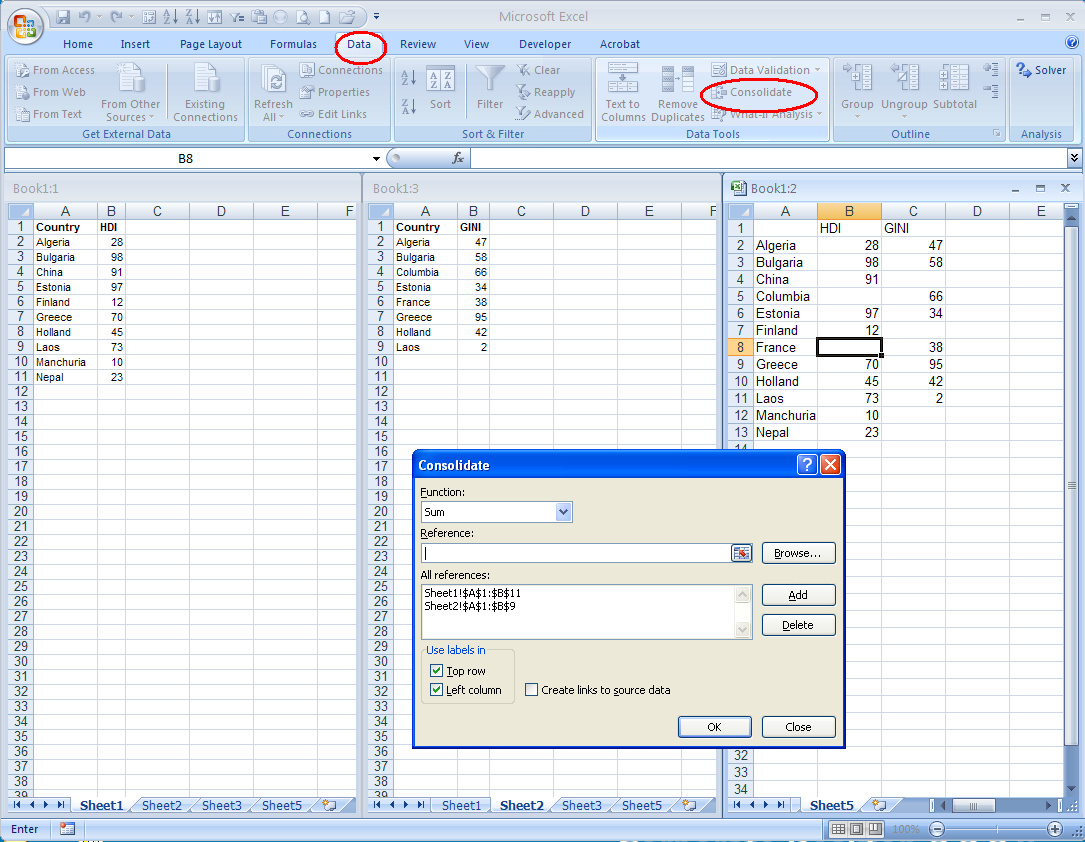5 Ways to Seamlessly Merge Two Excel Sheets

Whether you're compiling data from different sources, consolidating reports, or simply organizing your files better, merging Excel sheets can be an essential part of your workflow. However, merging data across spreadsheets isn't always straightforward and can be fraught with pitfalls if not done correctly. Here, we'll explore five effective methods to seamlessly merge two Excel sheets, ensuring accuracy and efficiency in your data management tasks.
1. Using VLOOKUP Function


The VLOOKUP function in Excel is renowned for its lookup capabilities, which can also be adapted for merging data from two sheets:
- Identify a common field in both sheets, like "Employee ID" or "Product Code".
- Set up the VLOOKUP formula in your destination sheet to retrieve and append data from the source sheet.
- Example formula:
=VLOOKUP(A2,Sheet2!A2:B100,2,FALSE), where A2 is your lookup value, Sheet2!A2:B100 is the lookup table in the second sheet, 2 is the column index number for return value, and FALSE ensures an exact match.
🔍 Note: VLOOKUP requires that the lookup column be the leftmost column in the source range. For a more flexible approach, consider using INDEX MATCH.
2. Combining Sheets with Excel’s Power Query


Power Query, available in Excel 2010 and later versions, provides powerful data transformation capabilities:
- Load both sheets into Power Query from the Data tab.
- Use the "Merge Queries" feature to combine the sheets based on a common key.
- Adjust the join type (Inner, Left, Right, or Full) as per your data needs.
- Expand the columns to bring in data from the merged query into your main query.
3. Using Paste Special and Formulas


If you're dealing with smaller datasets, a manual merge can be swift:
- Copy the header from the secondary sheet into your main sheet.
- Use Excel formulas like
=IF(A2="","",Sheet2!B2)to pull data from the secondary sheet where the row in the main sheet has data.
🔍 Note: This method is manual and less scalable for larger datasets. For recurring merges, consider automating with Excel macros.
4. Leveraging Excel Macros


Macros can automate complex, repetitive tasks including merging sheets:
- Record a macro performing the merge using VLOOKUP or other methods.
- Edit the macro to make it flexible by replacing hardcoded references with variables.
- Run the macro to merge sheets effortlessly.
🔍 Note: Macros require VBA knowledge but can significantly reduce manual effort once set up.
5. Using Third-Party Tools


For those who might find Excel's native functions limiting or time-consuming:
- Explore tools like Ablebits, Kutools, or specialized ETL software.
- These tools often provide intuitive interfaces for merging, matching, and cleaning data across sheets with minimal technical knowledge required.
By mastering these methods, you'll be able to merge data from two Excel sheets with greater ease, accuracy, and efficiency. Each method has its place depending on the complexity of your data, your familiarity with Excel features, and the volume of data you're dealing with. Remember, always check the accuracy of your merge by comparing source data with the merged output to ensure no data was lost or misaligned during the process.
Combining data from different sources into one comprehensive dataset is not just about merging cells; it's about creating a cohesive, accurate narrative from disparate pieces of information. By understanding and utilizing these merging techniques, you ensure your data analysis and reporting are grounded in reliable, merged data.
Can VLOOKUP merge multiple sheets at once?

+
No, VLOOKUP can only reference data from one other sheet at a time. For multiple sheets, you’d need to combine sheets into one or use a method like Power Query or macros.
What should I do if there are no common fields between sheets?

+
If there are no common fields, consider creating a unique identifier for each row or find a way to align data manually or through matching criteria you define.
How can I ensure data integrity when merging large datasets?

+
Always backup your data before merging. Use the “Undo” feature, perform quality checks by reviewing a sample of the merged data, and ensure your merge method handles duplicates correctly.
Is there a way to update merged data automatically?

+
Yes, with Power Query, you can set up a refresh mechanism to automatically update your data. Also, Excel’s GET & TRANSFORM DATA can be configured for automatic updates from external sources.



